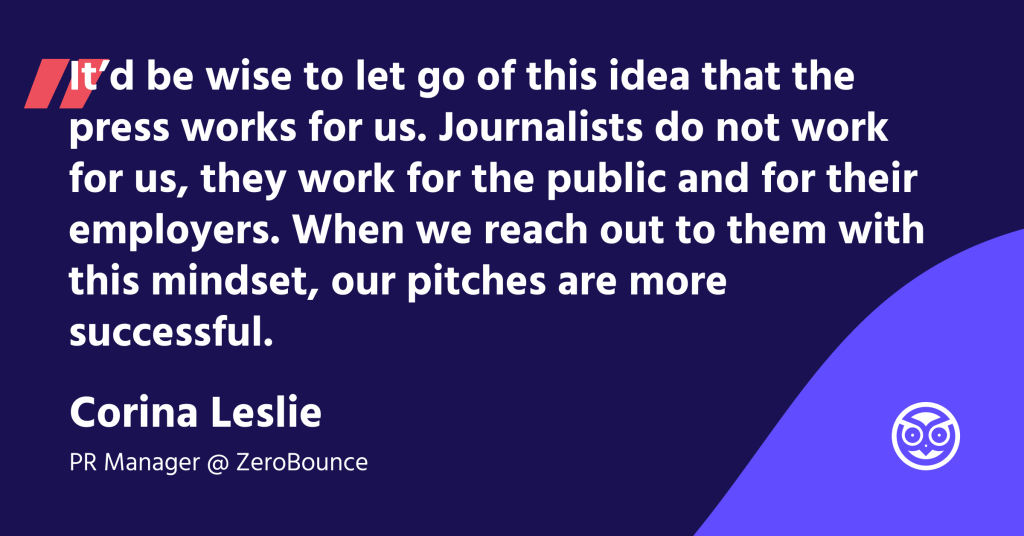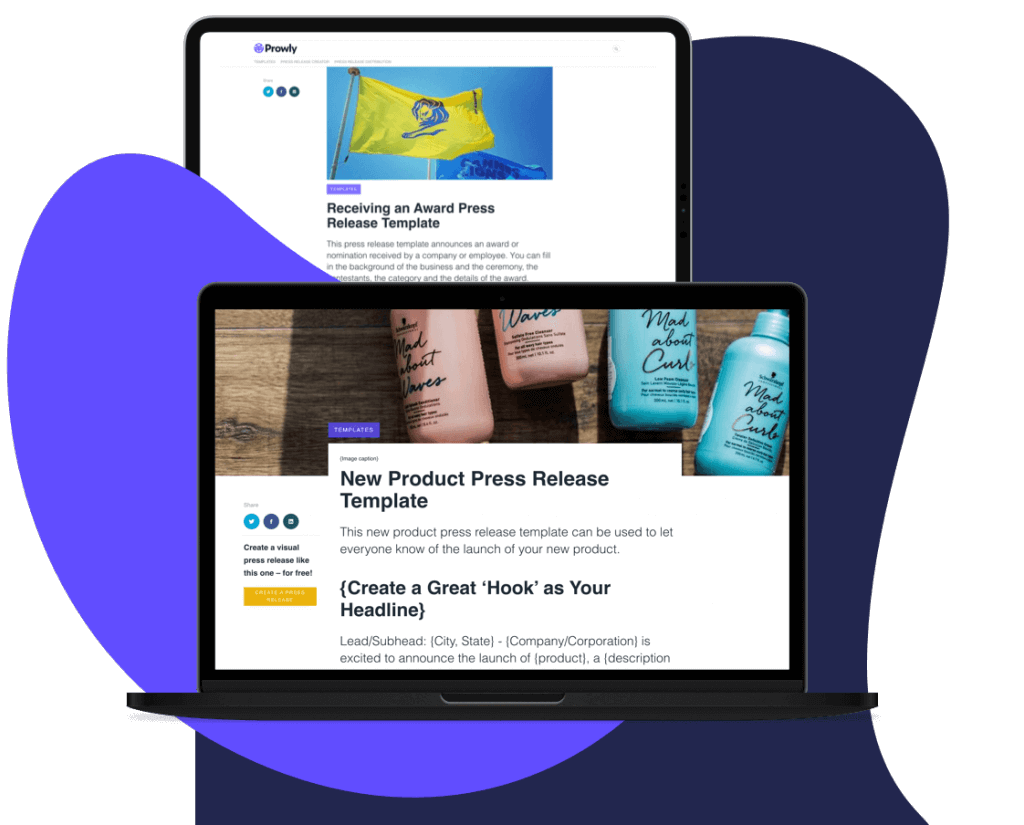It’s time for another Prowly #PRChat, where we catch up with leading PR pros for a quick chat on a wide range of PR-related topics. Corina Leslie, PR Manager at ZeroBounce, was kind enough to answer our questions and share her thoughts.
Before moving to PR, she worked as a journalist for 12 years, covering arts and culture and interviewing prominent personalities of our time. From big-picture ideas to practical daily concerns of PR leaders to some solid career advice, she manages to pack in a lot of great insights into just a few questions.
What are your day-to-day responsibilities as a PR Manager?
I take care of how people perceive our company. And with ZeroBounce being an online tech business, that includes lots of communication channels.
We’re a small team, so I manage our blog, social media channels, weekly newsletters and other email campaigns, reviews platforms, partnerships, and various SEO and copywriting projects.
Add to that my favorite occupation: media relations.
I reach out to writers consistently with pitches. Some of those pitches relate to story ideas I hope the media finds relevant. Others are for guest posts that I write. So I write all day, every day, for all these channels.
Like Marshall McLuhan predicted, we’ve come to live in a “global village,” and reaching the right people is easier – and harder – than ever.
How can you jump from a career in journalism to public relations?
Start with some side projects before you quit your job in journalism. When the time is right for you to go all-in, be ready to fully embrace this profession.
Dedicate yourself. Read, study, take classes and practice as much as you can. Give it all you’ve got, and the rewards will amaze you.
I started doing PR in 2012 when the press was already in steep decline. A friend who had a jewelry business asked me for help with her PR. Saying “yes” was the best thing I could’ve done.
What’s one successful PR tactic you are using at the moment?
In every pitch, I make sure the writer understands that we’re going to support them from beginning to end. From giving them everything they need to craft their story to promoting it everywhere once it goes live.
Media coverage is a collaborative effort. You work with that journalist to suggest, create and bring a story to life. But many companies do nothing with those stories once they see the light of day. It’s a shame to not take advantage of what you’ve achieved and let the world know.
First, it’s common sense to support the writers and media outlets that support you. But also, good PR tends to have a snowball effect: it generates more PR.
So, in every media pitch, I let the writer know what we’re planning to do for them. My response rates skyrocketed when I started doing this a few years ago.
What’s the best advice you can give PR students and interns?
Jump in the water and start swimming. There’s no better time than right now. If you’re nervous and afraid, follow that fear – don’t run from it. It’s there to guide you.
Also, educate yourself every day. Read all those great books. Devour the outlets where you’d like to see your clients featured. Stay curious and alert.
What should every PR practitioner stop doing?
It’d be wise to let go of this idea that the press works for us. Journalists do not work for us, they work for the public and for their employers. When we reach out to them with this mindset, our pitches are more successful. Replace “can you do this for me?” with “how can I help you better serve your audience?” and see the difference.

What’s something you or your team have recently achieved that you’re really proud of?
ZeroBounce landed in Forbes again, in a great story by Alison Coleman. She featured only three companies that managed to grow in spite of the lockdowns, and we were one of them.
Also, a guest post I wrote got accepted and will go live soon on a prestigious marketing publication. I’m ecstatic about it, since I’d been so nervous to send an article there. Like I said: follow your fear, see where it takes you.
Want to know more? Check out Corina’s articles on Prowly Magazine, and make sure to follow her on LinkedIn and Twitter.

